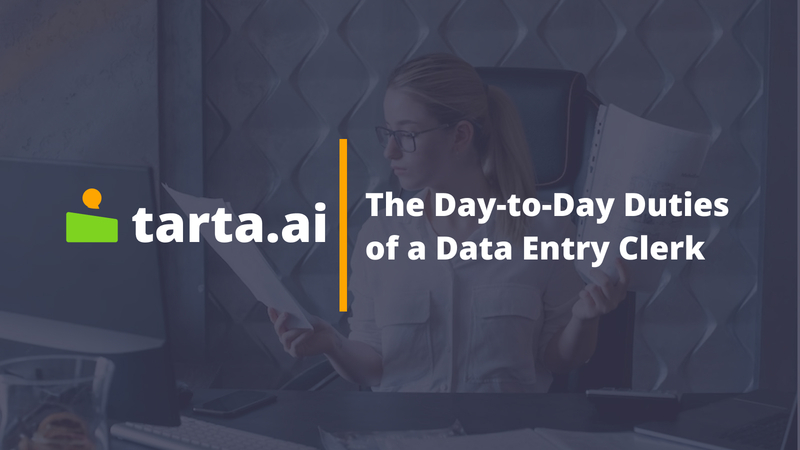The Day-to-Day Duties of a Data Entry Clerk

In today's fast-paced digital world, the role of a data entry clerk is more important than ever. Accurate and efficient data entry is crucial for businesses to make informed decisions and achieve success. In this article, we'll explore the day-to-day duties of a data entry clerk and the skills and tools they need to excel in their role.
- Data entry tasks
The primary duty of a data entry clerk is to enter data into various computer systems and databases accurately. This involves typing data into specific fields, checking data for accuracy and completeness, formatting and organizing data in a logical manner, and transcribing information from written or audio sources. Data entry clerks must also be proficient in using software applications such as Microsoft Excel, Google Sheets, and other data entry software.
- Quality control
Quality control is a crucial aspect of a data entry clerk's job. They must double-check entered data for errors, making corrections as necessary. Additionally, data entry clerks must collaborate with other team members to ensure accuracy and completeness of the data.
- Time management
Time management is also an essential skill for data entry clerks. They must prioritize tasks based on deadlines and importance, ensuring that data is entered in a timely manner. Data entry clerks must also manage their workload effectively to meet productivity goals.
- Communication
Effective communication is critical to success as a data entry clerk. They must communicate with team members and supervisors to clarify tasks and expectations. They should report any issues or discrepancies in data to the appropriate parties and collaborate with other departments to ensure data is entered correctly.
- Tools and software
Data entry clerks use various tools and software to enter data efficiently. Some of the commonly used tools and software include data entry software, optical character recognition (OCR) software, and keyboard shortcuts. It's essential to master these tools and software to increase productivity and efficiency in the role.
Interesting fact:
The first Data Entry Clerk job was introduced in the 1890s when Herman Hollerith invented the punched card tabulating machine to help process data for the United States Census.
In conclusion, data entry clerks play a crucial role in the success of modern businesses. The duties of a data entry clerk include entering data into various computer systems and databases, checking data for accuracy and completeness, formatting and organizing data, and transcribing information from written or audio sources. They must also have skills in quality control, time management, communication, and be proficient in various tools and software. With these skills and tools, data entry clerks can excel in their roles and contribute to the success of their organizations.
- Accurate and efficient data entry is crucial for businesses to make informed decisions and achieve success in today's fast-paced digital world.
- The primary duty of a data entry clerk involves typing data into specific fields, checking data for accuracy and completeness, formatting and organizing data in a logical manner, and transcribing information from written or audio sources.
- Quality control is a crucial aspect of a data entry clerk's job, and they must double-check entered data for errors, making corrections as necessary.
- Data entry clerks must collaborate with other team members to ensure accuracy and completeness of the data.
- Time management is also an essential skill for data entry clerks.
- Data entry clerks use various tools and software to enter data efficiently, including data entry software, OCR software, and keyboard shortcuts.
FAQ
What qualifications are required to become a Data Entry Clerk?
Most employers require a high school diploma or equivalent, and basic computer skills. Some positions may require previous experience in data entry or related fields. Proficiency in typing and basic knowledge of computer applications, such as Microsoft Office or Google Suite, may also be required.
What are the working hours for a Data Entry Clerk?
Data Entry Clerks typically work full-time hours, although part-time and flexible schedules may be available. They may work in shifts and overtime may be required to meet deadlines.
What skills are necessary for a Data Entry Clerk?
Some of the skills necessary for a Data Entry Clerk include fast and accurate typing skills, attention to detail, excellent time management skills, ability to work independently or in a team, strong communication skills, and proficiency in computer applications.
What are the career prospects for a Data Entry Clerk?
While Data Entry Clerk is an entry-level position, it can lead to other positions in the data management field, such as Data Analyst or Database Administrator. Advancement opportunities may depend on the company and the individual's experience and qualifications.